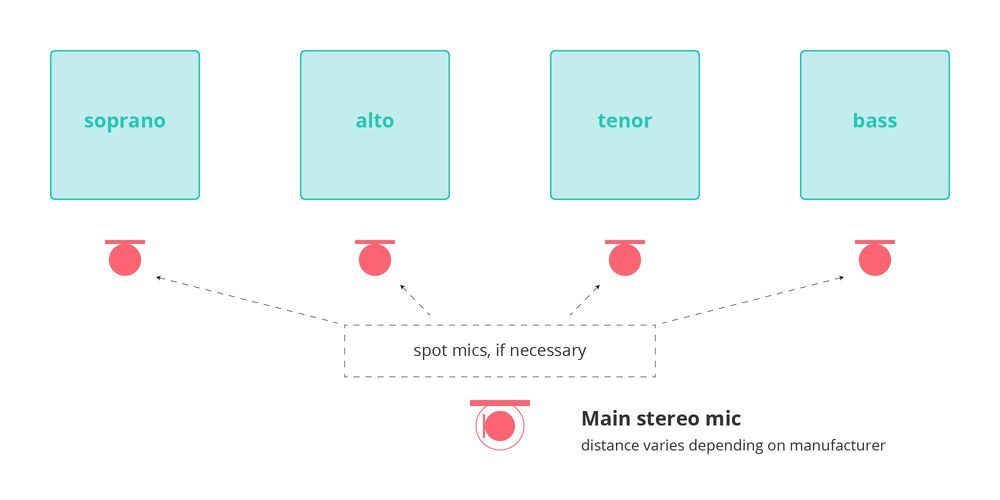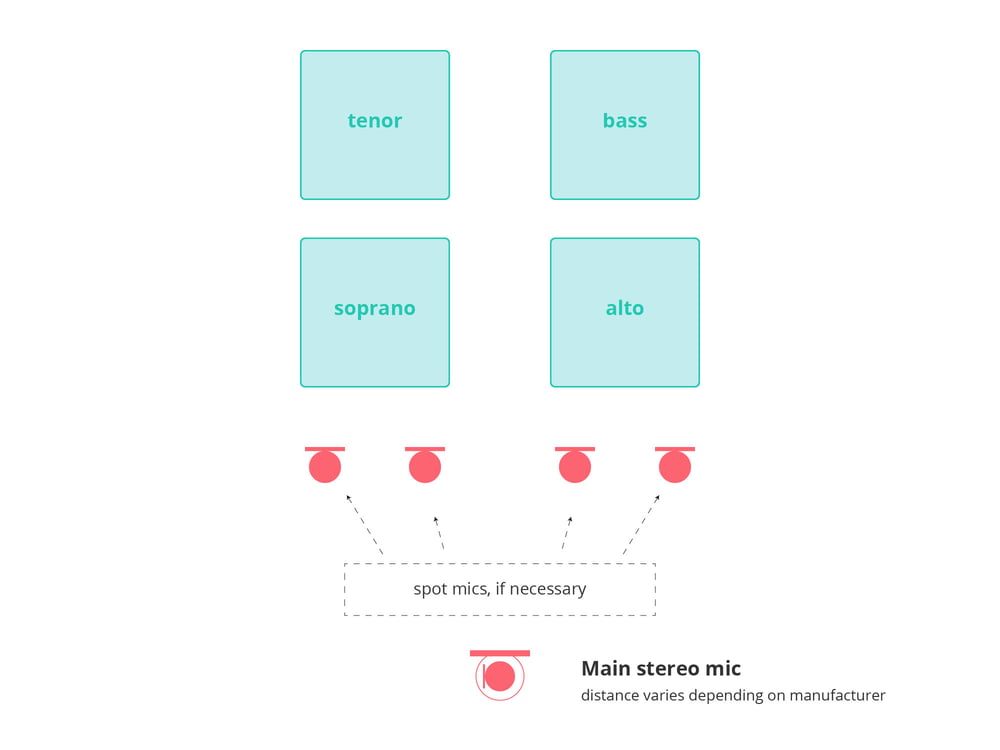2. The choir - the arrangement of the sections
In the following, the choir type I shall be talking of is a mixed choir with the very common polyphonic division into soprano, alto, tenor and bass sections. Furthermore, it is important to think of the choir literatiure, too - are we talking about a choir with a more classical or more modern (pop, jazz, gospel) repertoire?
Get an impression yourself of the choir's sound. Ask the conductor to let the choir sing a representative piece. Pay attention to the sound of the different sections. What is your impression of the overall sound? Do the higher-pitched sections dominate?
This may frequently occur thanks to the larger number of woman members in choirs nowadays. Such cases require the use of spot mics, about which more later.
Arrangement 1:

Choir arrangement 1
Many engineers prefer this arrangement. I would advise you to also arrange the choir in a semicircle, if the room allows for this. This has the further advantage that the choir members see each other and that their respective distances from the main mic are approximately equal.
The main characteristics of this arrangement:
- the homogeneous overall sound of the choir
- the choir members can better hear each other
- no dominance of the higher-pitched sections
Arrangement 2:

Choir arrangement 2
The arrangement above is frequently seen and also wished for. Its advantages are that
- the audience is better able to distinguish the various sections and that
- the choir's sound is more transparent.
But you must also keep in mind that
- this arrangement does not facilitate as close a cooperation and that
- the higher-pitched sections will dominate at the same volume.
Some general principles:
Try to arrange the choir on steps or auditorium-style platforms. This prevents the front sections from swallowing the sound of those in the back, and their voices can reach the main mic unhindered. It also facilitates better eye contact between the individual choir members and sections and the conductor. The main mic should in such an arrangement be pointed towards the centre of the choir, at the height of about the heads of the penultimate row of singers, without being angled.
Naturally, this is no fool-proof recipe for success but rather a first guideline. You have to asses the suitability of your arrangement after listening to the first test recordings.




